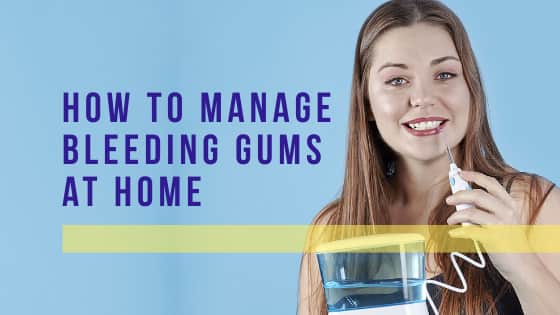Bleeding gums is the most common sign of gum disease. It is therefore very important to keep a watch and treat it as soon as possible. With the pandemic, it is slightly harder to seek care from dentists. Through this article learn about the various causes of bleeding gums and some home remedies to treat it.
Research by Evergreen dental states that
90% of the adult population has the problem of bleeding gums in at least one small area. Furthermore, around 20% suffer from serious
periodontal diseases.
There are many different factors that can cause your gums to bleed.
Gingivitis which is a mild form of gum disease is one of the most common causes.
Gingivitis occurs when plaque, a gummy film made up of bacteria, builds up on your teeth as a result of the starches and sugars in your diet. This build-up results in the tartar and typically leads to
tooth decay and gum disease.
Here are some common reasons that lead to gum disease
- Failing to brush your teeth frequently or at least twice a day.
- Use of a hard toothbrush.
- Using an old, broken toothbrush
- Flossing coarsely, instead of gently pushing it down and squeezing the sides of each tooth.
- Certain medications, such as aspirin, blood thinners, or ibuprofen.
- Early-stage gingivitis.
- Poor oral health or oral hygiene.
- Vitamin K deficiencies
Caring for Bleeding gums at home
Saltwater: A warm salt water rinse helps in reducing bad bacteria and cleanses the mouth. Rinse your mouth with this warm salt water
several times a day for best results.
Good oral hygiene: To avoid
periodontal disease, brush and floss gently and regularly. It is essential to use the right toothbrush for your teeth and gums. Swollen gums are commonly observed in people who use a hard toothbrush.
Right toothbrush: It is ideal to purchase a brush with
soft bristles and replace them every couple of months. it is the best way to remove plaque and avoid inflammation of the gums. It could also help in maintaining your gum lines.
Flossing: Many people observe bleeding gums when they
just start flossing. This is common and not a cause of worry. The bleeding will decrease over time. This will also help improve the general health of the gums. Invest in a good quality
Waterpik Flosser and use it regularly, this helps in keeping the plaque away and also in massaging the gums, check with your periodontist if Waterpik flosser is right for you.
Turmeric paste: Turmeric has several antibacterial and
anti-inflammatory properties. It is ideal to mix a paste of turmeric along with baking soda and apply it over the gums.
Using a mouth-wash: Mouthwashes with antibacterial ingredients can both treat and prevent bleeding gums. These solutions
kill bacteria and reduce inflammation to soothe sore, swollen and bleeding gums. Mouthwash can also treat and prevent gingivitis, which is a leading cause of bleeding gums.
Using ice: Ice packs are great to minimise pain and inflammation. It is not a treatment it is best to minimise the symptoms of gum disease. Apply the ice pack for
10 minutes and take a couple of minutes of break and reapply to help with the bleeding. If the bleeding does not stop it is best to book an appointment with the dentist.
Avoid Smoking: Smoking is the primary cause of gum disease. Cigarette smoking
damages the immune system. It reduces the body's ability to fight the bacteria that naturally attach to the gums. Once the gums are damaged, smoking makes it harder for the body to repair the damaged tissue.
Quitting smoking is beneficial for the whole body and
dramatically improves the health of a person's mouth and gums. By quitting smoking, many people notice an improvement in their oral health in a short period of time.
Avoid processed food: Starchy
foods can
cling to the teeth and gums and break down into sugar. Over time, this can lead to gum inflammation, bleeding and increased
cavities.
Eat leafy vegetables rich in vitamin K: Vitamin K deficiency can affect the amount of time it takes for the
blood to clot. Patients experience more bleeding than usual if they have low levels of vitamin K. Leafy greens, such as
kale, lettuce, and spinach, are great sources of Vitamin K.
When to visit the dentist?
It is important to check with your dentist if you notice any
significant changes in your gums, teeth or mouth.
Pain, redness, or
bleeding of the gums, for instance, should not occur every day. If the
problem occurs frequently or does not go away with good oral hygiene practices, it is important that the dentist check to determine and treat the problem.
Periodic visits to the dentist can prevent minor and early gum disease from getting worse. If gum disease is left untreated, it can eventually lead to infection and tooth loss. Your dentist can also look after a person's
overall oral health and identify more serious problems, such as the early stages of oral cancer.

